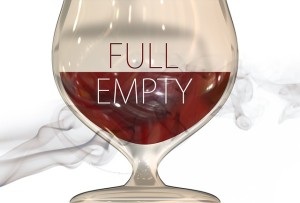 Today I read that the Doomsday Clock has moved forward two minutes.
Today I read that the Doomsday Clock has moved forward two minutes.
Yet the transcript of President Obama’s State of the Union address from earlier this week was effusively positive. He declared “The shadow of crisis has passed, and the State of the Union is strong.” and that “we have risen from recession freer to write our own future than any other nation on Earth.” He warns against being “fearful and reactive” and “dragged into costly conflicts”.
Is the glass half full or half empty? And regardless of your perspective being full-of-hope or fearful, what decisions should we be making / what actions should we be taking with regard to the challenges we face?
As I do every blog, I’m going to now pull a Virtues Card to provide a lens by which to frame my own response to these questions. In case you wondered, I’m not lobbing myself softballs with this approach as indicated by today’s pick – Idealism. “Idealism is having a vision of what is possible and wanting to make a difference. It is caring passionately about what is meaningful in life. Idealists see things as they could be and have faith in the power of change.”
 This leans in the direction of the President vs. Doomsday Clock watchers confirming my perspective. Despite very real reasons to agree with the folks who moved the clock forward viewing the glass as half full is the right choice. That perspective points us in the right direction. But wait. The card quote continues…
This leans in the direction of the President vs. Doomsday Clock watchers confirming my perspective. Despite very real reasons to agree with the folks who moved the clock forward viewing the glass as half full is the right choice. That perspective points us in the right direction. But wait. The card quote continues…
“We put our principles into practice. We don’t just accept the way things are.” and it concludes “Idealists do something to make things better. We make the ideal real.”
This is where I diverge sharply from the President’s narrative. What he calls “reactive” I call “necessary”. We can’t wish away the conflicts. If we are freer than any other nation on earth to write our own future, we must reverse the course he has chosen internationally, which is to withdraw and let the bullies and the bad actors have their way in large areas of the world. We must stop them raping and pillaging our fellow global citizens.
He, for example, believes we acted appropriately by essentially not acting when Russia annexed part of Ukraine. But we promised Ukraine that we would protect them in exchange for giving up their nuclear weapons. Shame, shame, shame on us for abandoning them in their hour of need. This is just one example of where my view on the volume in the glass of America’s current President on international matters is decidedly shy of half-full.
For leaders to inspire with idealism they must lead in the direction they want people to move. Withdrawing into our own echo-chamber and patting ourselves on the back about our idealism is not the real thing. Idealism not only envisions rosy outcomes, it requires making touch choices, and having the courage and commitment to follow through on them.





